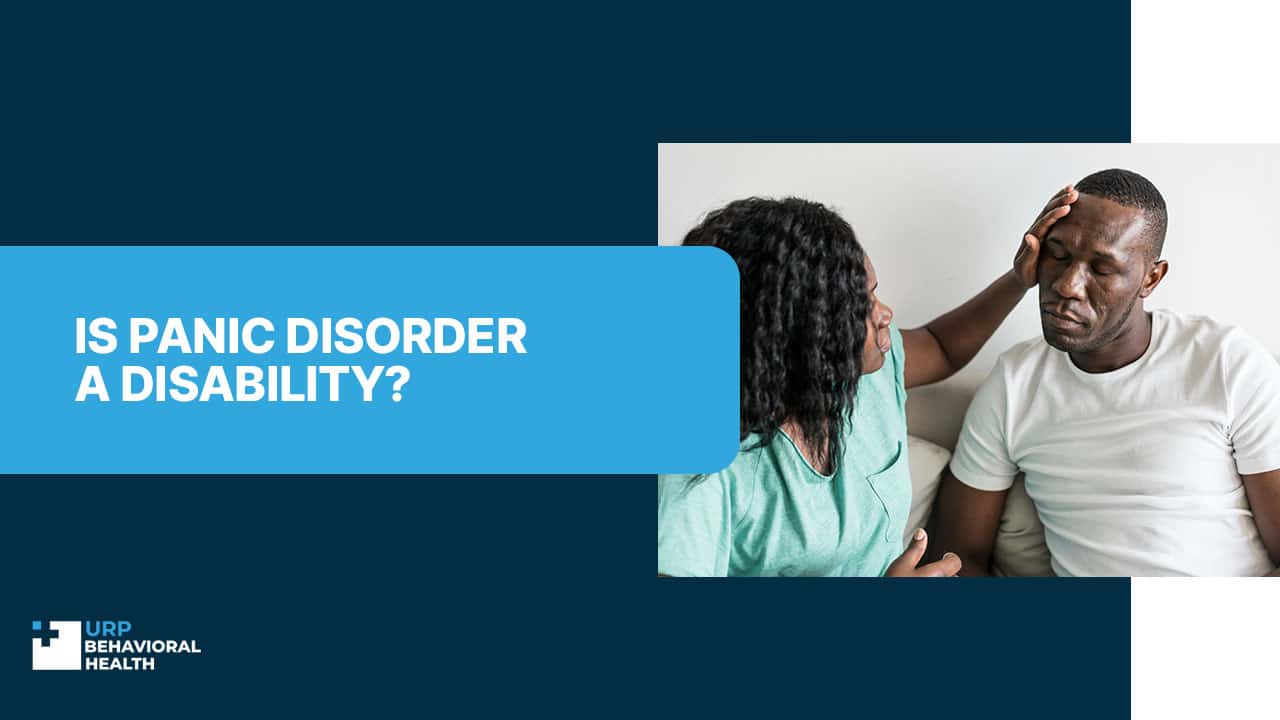
Is Panic Disorder a Disability?
Fear is one of the essential human feelings that helped us evolve and preserve our population in the past. It is quite normal to fear something when you are in some dangerous, weird, or uncertain circumstances. Yet, a normal feeling of fear always occurs for some reason. If there are no such reasons and a person suddenly experiences severe panic, this is an abnormal situation called a panic attack. If it occurs once, there is nothing to worry about. Quite another thing is when you have panic attacks regularly, they are unpredictable and negatively impact your life routines. In this case, such mental health issues can even lead to disability for panic attacks.
In this article, we are going to discuss what panic disorder is caused by panic attacks, how an individual can cope with it, and if there are any assessments for panic disorder disability.
What Is Panic Disorder?
Let’s start with the definition of what panic disorder is. Today, it is recognized by DSM-5 as a part of a more generalized anxiety disorders section [1]. This type of anxiety disorder is characterized by intense, irregular, unpredictable, and recurring panic attacks often evoked in a person without any threat, reason, or presuppositions. Along with Generalized Anxiety Disorder, this mental health condition remains among the most common in the US population. According to recent studies, an estimated 2.7% of adults have been diagnosed with panic disorder [2].
Don’t wait - confidential help is available right now for you or your loved one.
Typical Symptoms of Panic Disorder
As for the symptoms of panic disorder, today, MH specialists highlight the following ones along with panic attacks:
- regular heart racing or pounding;
- trembling;
- feeling cold or on the contrary, experiencing hot flashes;
- feeling dizzy;
- weakness in limbs and numb hands;
- chest pain.
At once, panic attacks are the most characteristic signs of panic disorder, and their severity often is decisive in the question of whether you can have a disability for panic disorder.
Are Panic Attacks a Sign for Disability Assessment?
Panic attacks are not a sign of disability assessment as they are. Even the healthiest people can experience a panic attack, for example, when climbing a high mountain or being onboard during a storm for the first time. That’s natural. You feel anxious, you feel fear, and you even think that you are dying at such moments. Yet, if panic attacks occur without any reason, and they badly impact one’s life, they can be a sign of disorder which can lead to disability.
Can I Get Disability for Anxiety and Panic Attacks?
In the case of panic attacks, it is quite important to decide on their causes. That’s why patients with panic attacks related to generalized anxiety disorder or panic disorder should surpass assessment for such conditions as hyperthyroidism, hyperparathyroidism, and cardiac arrhythmia because they can induce similar symptoms [3]. If the cause of panic attacks is determined as one of the anxiety disorders, then a complex diagnostics and evaluation of the severity of panic attacks follow a preliminary diagnosis to decide on disability of a patient. Thus, it is possible to get assessed for disability if you have panic attacks, yet, each case is evaluated by MH specialists separately.
We’ll help you understand your options and guide you toward care.
Is Panic Disorder a Disability Under ADA?
With the proclamation of ADA, The Americans With Disabilities Act in 1990, the list of mental health issues leading to disability was greatly expanded. Panic disorder was also included in it because the main principle to decide on someone’s disability according to ADA, is that a diagnosed person should have impairments that limit their ability to function under specified activities like thinking, concentrating, seeing or hearing, performing physical or intellectual jobs. Panic attacks impact all these activities making a patient unable to perform them. Thus, panic disorder is acclaimed by the ADA as a diagnosis that can cause disability.
Social Security Administration (SSA) and Panic Disorder Disability
SSA defines panic disorder as a disability but with certain specifications. First, SSA offers financial compensation for disabilities under 2 programs:
- SSDI working for disabled adults eligible for this program;
- SSI program that works for disabled persons over 65.
To qualify for SSDI, a person with panic disorder should meet the following requirements:
- A person must have worked for at least 5-10 years contributing to Social Security (payroll tax/FICA).
- Panic disorder should be diagnosed by specialists and it should be proved that PD affected the patient’s ability to work for at least 1 year.
As for the SSI program, to qualify for it, a senior with PD should be diagnosed and provide proof that their income is lower than $2,000 per adult or $3,000 per couple.
VA Disability for Panic Attacks
Panic attacks and panic disorder are among the most common mental health issues among veterans along with PTSD. If you get panic attacks because of trauma which is a result of your military service, you can apply for VA disability compensation. Please, pay attention to the rate provided by the VA to decide on the severity of panic disorder. This rate is from 0% to 100% and defines the amount of disability compensation assigned for each rate separately. It is estimated for each patient after passing a mental health compensation and pension exam.
Summaries
Panic disorder and disability are correlated, as a panic disorder in its severe manifestation leads to disability. In some cases, a patient with PD can even remain unemployed and unable to work. Such a situation is covered by governmental programs by SSA and VA yet, besides them, a timely treatment is a must for such patients. Panic disorder can be treated successfully by several types of therapy including medication management, psychotherapy, talking therapy, mindfulness, and CBT. In URP Behavioral Health, you can get an effective treatment for panic attacks and complex panic disorders to return to active functionality.
Reach out today and let us create a treatment plan designed around your needs.
Resources:
- https://www.nhs.uk/mental-health/conditions/panic-disorder/
- https://www.nimh.nih.gov/health/statistics/panic-disorder#:~:text=An%20estimated%202.7%25%20of%20U.S.,than%20for%20males%20(1.6%25).
- https://pubmed.ncbi.nlm.nih.gov/37036769/
















